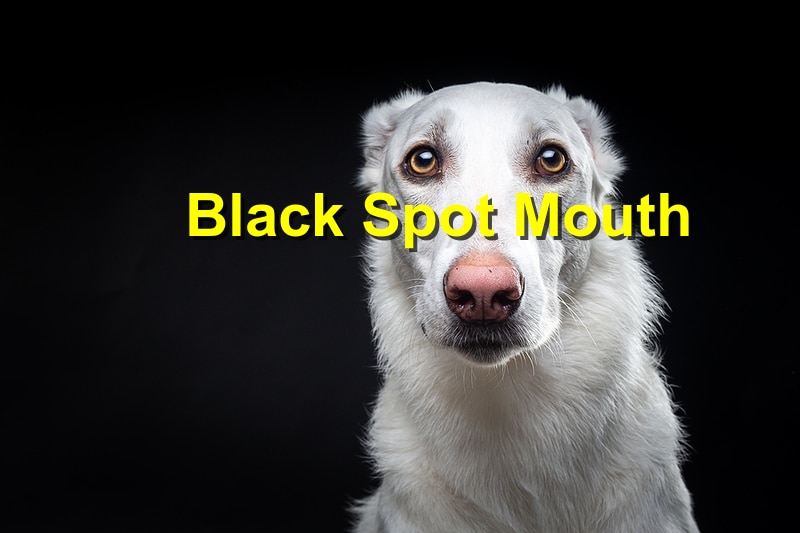Spotting a black spot in a dog’s mouth could imply many things, depending on where exactly in the animal’s mouth it appears. It can be anything from just normal pigmentation to a brewing case of oral melanoma that necessitates urgent veterinary attention. Here’s a quick but detailed premise of that.
Underlining Causes of Black Spots in Your Dog’s Mouth
- It Could be Just Normal Pigmentation: Most often than not, black spots in your poodle’s mouth shouldn’t be anything serious other than just normal pigmentation. You see, melanin, the naturally-occurring pigment that causes some areas of your skin to appear darker than others, can sometimes merge into a dark spot on the nose, tongue, or even the gums. As you may expect, these spots are likely to appear perfectly flat and don’t necessarily grow in size or spread to other areas. Certain dog breeds, such as Shar Pei and Chow Chow, are more predisposed to manifest harmless black pigmentation in their mouths than others.
- Oral Melanoma: Another cause of black spots in a poodle’s gum can be oral melanoma. It’s a relatively severe type of malignant cancer of the mouth. Unlike normal pigmentation described above, melanoma often appears as a raised lesion that grows gradually over time. Moreover, you are also likely to notice a peculiar taste of foul breath/odor emanating from your favorite animal’s mouth.
- Dental Disease: Did you know that dental disease can also progressively and systematically darken your dog’s gums? These dark spots usually appear around the periphery of where the infected tooth is located or where the disease is brewing. Alongside the apparent darkening, other signs of such a case of dental disease include foul breath, tooth loss, and a gross-looking build-up of tartar. Luckily, you can keep such cases of dental disease at bay by brushing your favorite poodle’s teeth daily using a combination of dog-specific toothpaste and a soft-bristled toothbrush.
In Closing
As much flat black spots appearing on your dog’s gums and nose can be perfectly harmless/typical, it is still advisable to get the animal checked out by a veterinarian just to rule out anything queer and get ahead of it before it morphs into something hard to treat.
References: TrendingBreeds, DoggySaurus

